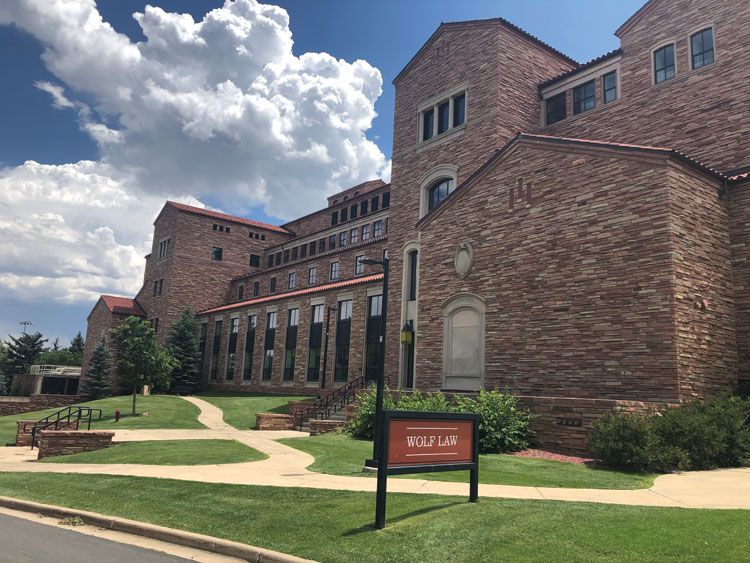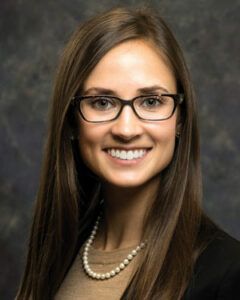2020 law class faces dual career threat


BOULDER — Therese Fox and her classmates have spent the past several weeks buried in books for hours per day, following in the footsteps of other law school graduates who spend the late spring and summer each year preparing for the bar exam.
But as of this story’s printing, the law class of 2020 is preparing for the most important test of their careers while not knowing whether or not Colorado will be forced to delay the exams set for the end of July due to the ongoing threat of coronavirus.
Perhaps worse, they are studying for the bar with far less confidence that their investment of three intense years of training and massive debt loads will pay off with a job.
SPONSORED CONTENT
People Powered: Preparing Longmont Businesses for Economic Success
Longmont Chamber and FNBO present People Powered on April 24, 2024, aiming to inform business owners about workforce development, housing, and transportation issues.
Bar’s closed?
Several states in the U.S. have already delayed their bar exams, the test that law graduates must take in order to practice law within their jurisdiction, because the tests gather hundreds or thousands of people in rooms over the course of multiple days to make sure they don’t cheat.
Eighteen states have completely rescheduled their summer bar exams to the fall of this year, including states with major legal industry hubs such as California, Illinois, Massachusetts and New York.
Colorado is among several states that plans to hold its summer exams as scheduled on July 28 and 29. However, the Colorado Supreme Court has said it will reschedule the exams for Sept. 30 and Oct.1 if the pandemic risk is too great.
Fox continues to study as if she will sit for the exams at the end of this month, and she’s already about halfway through bar preparations. She said it’s not exactly clear how she’d change her study habits if the exam was delayed since stopping studying altogether would hurt her chances of passing, but continuing to study at a full-time pace wouldn’t be realistic.
That added stress from retooling a study plan would be compounded by the fact that these students still need to pay basic living costs. Finding part-time work amid the pandemic-stricken economy will be particularly hard, especially as 13.5% of the American labor force is out of work as of May and employers generally are avoiding hiring temporary staff to save on training costs.
“All those short-term jobs aren’t really options for us anymore,” she said.
Graduating into a soft economy
Should the bar exams be delayed, the graduates aren’t completely without work in their legal field. An emergency rule in Colorado and other states allows law grads to perform limited amounts of work for a firm while under the supervision of a licensed attorney.
However, the legal industry isn’t exempt from the broad economic downturns caused by COVID-19, and that poses a threat to the career paths of aspiring attorneys.
Todd Rogers, an assistant dean for career development at Colorado Law, said it’s too early to quantify exactly how much the entry-level job market has changed due to the virus. However, early figures aren’t promising. In the past five years, usually between half to two-thirds of the graduating class have job or clerkship offers at this point in the year, Rogers said.
This year, that figure is between 50% to maybe 54%.
“We’re still behind where we’d be for a ‘normal year,’ but maybe not as behind as we’d feared back at the end of March and early April,” he said.
Rogers said the early summer tends to be pretty slow in hiring activity, as students are preparing for the bar and law firms leave them alone to study. The most active time for hiring will be in August and September, when Rogers believes that the full effects of the COVID recession will become apparent.
Fox still has a job offer from a major multi-state firm, but she and other graduates won’t start until next January instead of this October as previously planned. She’s one of the lucky ones, saying that one of her classmates had a job offer rescinded.
“I can’t imagine dealing with that,” she said.
Echoes of the Great Recession
History has a pretty modern precedent for what happens when a group of heavily-indebted law students graduates into a calamitous economic situation.
David Kerr is among those who graduated with a juris doctor degree in 2008 and later got a master of laws degree from the University of Denver a year later. He applied to every law firm with an intellectual property practice in the western U.S., he said, and all but one of them wouldn’t even take his resume.
“I literally had two options coming out of law school; one was a small IP firm in Fort Collins that was willing to talk to me, and I had an application for working the night shift at Home Depot loading pallets,” he said.
Kerr is now a patent attorney at Berg Hill Greenleaf Ruscitti LLP in Boulder, where he also heads the firm’s law clerk hiring committee. Prior to the pandemic, Berg Hill was busier than ever before, and the firm hired four students as summer clerks because of the workload it had. The firm will honor its offer and hire two former law clerks as associate attorneys assuming they pass the bar.
He said the legal industry tends to become fairly risk averse during economic downturns, meaning cuts to salaries, overhead expenses and new hires are likely throughout the profession.
The longer aspiring lawyers have to wait to land their first jobs due to a recession, the harder it becomes for them to find any type of work in law because law schools continue to expand the employee pool with newly-minted graduates.
One study from 2018 estimates just 44% of law graduates between 2009 and 2017 described themselves as having a “good job” waiting for them after passing the bar, and just more than a quarter said it took them more than a year to find a suitable position in the legal industry.
The average debt load coming out of law school around that time was into the six figures as it is today. Kerr said many of the law students of his generation have had to defer repayments or stretched out their payment schedules to the length of a mortgage just to make due.
Many of his classmates never got their first jobs at all, pivoting into business or banking. Some went and started firms of their own.
“I think for the first couple of years, I think there’s a lot of people probably regretting having gone to law school and made that kind of an investment and to not have any kind of a job opportunity on the back end of that,” he said.
But Kerr isn’t certain that the fates of the classes of 2008 through 2011 are what await the class of 2020, mostly because the Great Recession was caused by long-term structural problems in the financial sector rather than a pandemic, which could be quelled with a vaccine or breakthrough treatment.
“Such a different situation”
Fox, 32, didn’t follow the usual trajectory of a lawyer. She graduated from college in 2010 and spent seven years in consulting, a job she grew to hate. After undergoing a major surgery at 28, she decided life was too short to stay in a field she didn’t enjoy and moved to Boulder, a place she often visited as a child with her family, to get her law degree.
Fox’s hope is to get into corporate law, specifically within the fields of securities regulations and mergers and acquisitions. Whether her career path and the paths of law graduates across the country remain according to plan remain to be seen.
Until then, Fox has her health, her safety and a chance at a well-paying job in the future. That’s more than the dire health and economic situation that millions of Americans are facing.
“In a way, it brings some of the worrying out of it, if that makes sense at all, because there’s truly nothing I can do to make the situation other than be a responsible individual, wearing a mask, don’t go out, all that stuff,” she said. “But on the whole, I guess it could be worse?”

